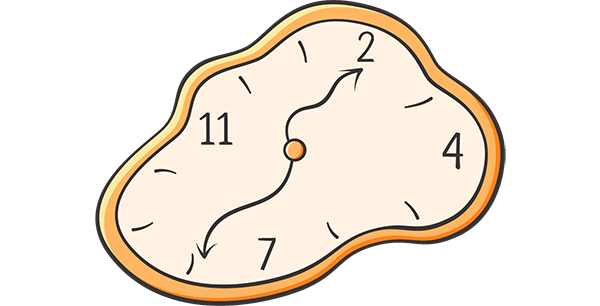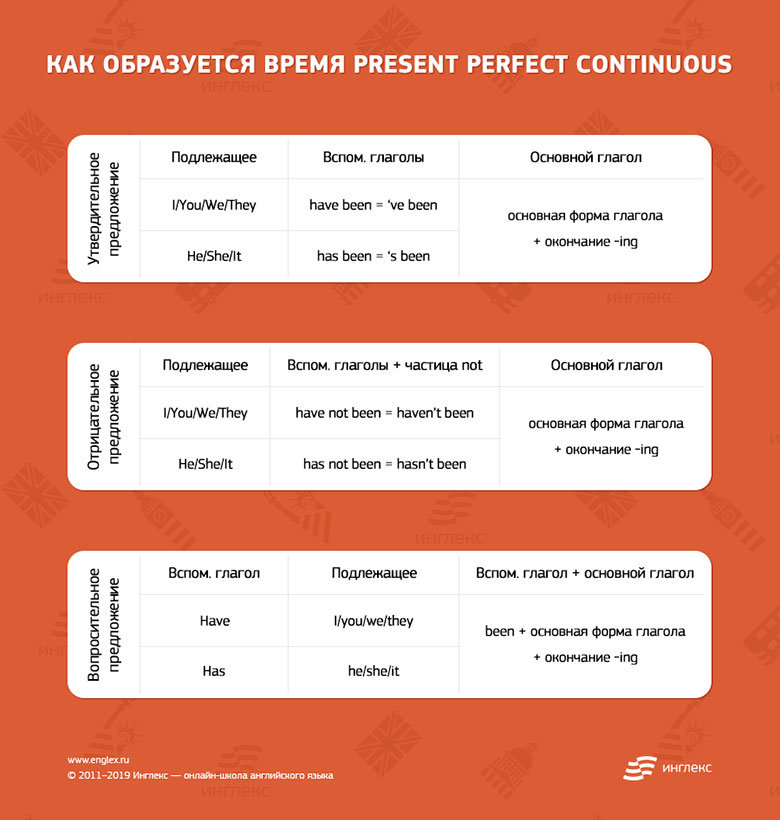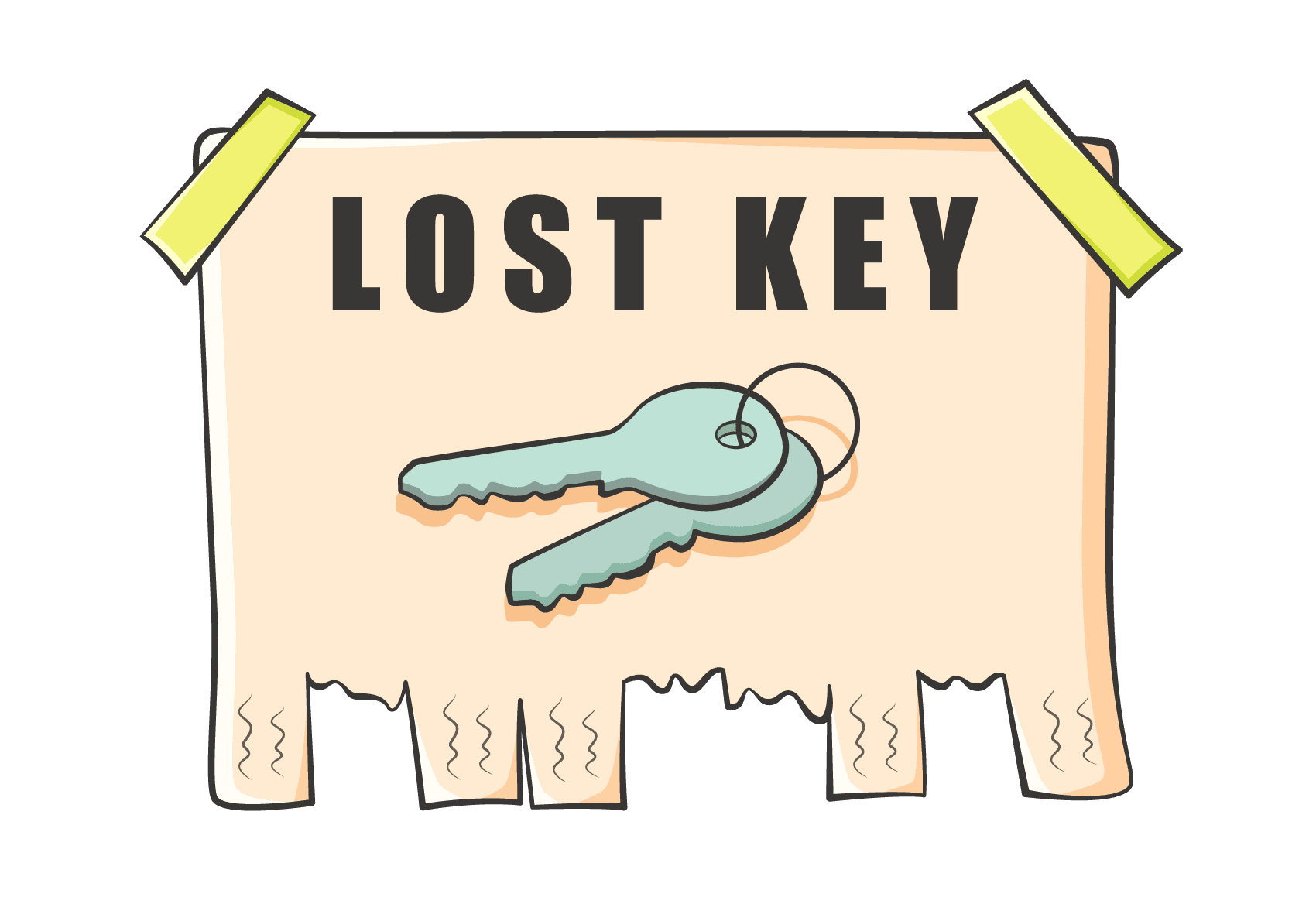- Приветствие
- Morning
- How are you doing?
- What’s going on?
- How is it going?
- How have you been?
- How are you?
- What’s up?
- Not much
- Nice to see you
- It’s been a while
- It’s been so long
- Present Perfect Continuous — правила и примеры
- Образование Present Perfect Continuous
- Употребление Present Perfect Continuous
- Present Perfect Continuous и Present Perfect
- Present Perfect Continuous и Present Continuous
- How to Answer the Question “How Have You Been?” in Fluent English
- How have you been?
- When to Use the Question “How have you been?”
- Short answers to answer the question
- Longer answers to answer the question
- How to Sound More Fluent and Native-like when you Answer the Question “How have you been?
Приветствие
Перейдём к фразам, которыми носители английского языка приветствуют друг друга. В принципе, ничего страшного не будет, если вы будете обходиться стандартным Hi. Но хотя бы понимать все эти выражения нужно, иначе можно не понять обычного вопроса «Как дела?» и начать глупо переспрашивать.

Фото: pxfuel
Лёгкое приветствие, если вам лень много говорить.
Можно сказать hey there.
Hi there тоже говорят. Слово there добавляет непринуждённости, носители языка отмечают, что в таком приветствии слышится дружеская ирония.
Morning
Для более формальных приветствий лучше использовать традиционные Good morning/aftenoon/evening или их сокращённые формы, без good.
How are you doing?
Эта и следующие фразы означают ‘Привет’ или ‘Как дела?’. Используйте любые из них, главное не ‘хау ду ю ду’ 🙂
What’s going on?
Часто означает ‘Что происходит?’, но в качестве приветствия тоже постоянно используется.
How is it going?
Отвечают на эти вопросы обычно Good, Not bad, Great, Fine, Okay и т. д.
How have you been?
Если кого-то не видели достаточно давно и спрашиваете, как у него дела с тех пор.
How are you?
Ну и всем известное ‘How are you?’ никто не отменял.
Можно и спросить об общих знакомых. ‘Как там Джеф и Берел?’
What’s up?
Пожалуй, самый неформальный из подобных вопросов — смысловая нагрузка минимальна.
Not much
Дела могут одти не только ок, но и ‘ничего особенного’ (nothing much, not much и т. д.)
Nice to see you
Стандартная фраза ‘Рад видеть’. Отвечают обычно you too или зеркально, как в следующем примере.
Вместо nice часто бывает glad или как здесь — happy.
It’s been a while
Дословно — ‘прошло некоторое время’, чаще всего используется в значении ‘давно не виделись’.
It’s been so long
Примерно то же самое, только более эмоционально: ‘Так давно не виделись!’
Источник
Present Perfect Continuous — правила и примеры
В этой статье мы подробно изучим правила и примеры Present Perfect Continuous. Оно выражает длительное действие, которое только что завершилось или все еще продолжается. Также сравним Present Perfect Continuous с временами Present Perfect, Present Continuous и Past Continuous и разберемся, в каких случаях их употреблять.
Время Present Perfect Continuous на русский язык переводят как «настоящее совершенное длительное время». Не пугайтесь такого длинного названия. На самом деле разобраться с ним не так сложно, особенно, если вы уже хорошо освоили Present Perfect. Давайте начнем с образования Present Perfect Continuous, а затем перейдем к правилам и примерам.
Образование Present Perfect Continuous
Present Perfect Continuous образуется по следующей схеме:
Примеры утвердительных предложений в Present Perfect Continuous:
It has been raining all day long. I’m sick and tired of this weather. — Дождь идет весь день. Меня достала эта погода.
Sorry, I am late. I’ve been looking for a parking spot. — Извините, я опоздал. Я искал место для парковки.
She’s been talking to her boss since morning. I believe she is in trouble. — Она разговаривает с боссом с самого утра. Похоже, у нее проблемы.
Примеры отрицательных предложений в Present Perfect Continuous:
Sorry, I haven’t been listening to you. Now I’m all ears. — Извини, я тебя не слушала. Теперь я вся во внимании.
He hasn’t been working all weekend. He is lying. — Он не работал все выходные. Он врет.
Things have not been going really well lately. — Дела идут не очень хорошо в последнее время.
Примеры вопросительных предложений в Present Perfect Continuous:
Your clothes are all dirty. What have you been doing? — Твоя одежда вся грязная. Что ты делал?
How long have you been dating him? — Как долго ты с ним встречаешься?
Has he been watching series all day? — Он что, смотрел сериалы весь день?
Употребление Present Perfect Continuous
А сейчас поговорим о том, когда используется Present Perfect Continuous.
- Употребляем Present Perfect Continuous для действия, которое началось в прошлом и продолжается в настоящем. В таких предложениях мы акцентируем внимание на продолжительности действия. Обратите внимание на слова-маркеры Present Perfect Continuous: for (на протяжении, в течение), since (с какого-то времени), all morning/day/week (все утро / весь день / всю неделю), lately (в последнее время), recently (недавно, на днях).
I have been looking through these articles for two hours but I still can’t find the information I need. — Я просматриваю эти статьи уже два часа, но все еще не могу найти информацию, которая мне нужна.
We have been planning our trip since January. — Мы планируем нашу поездку с января.
Try it! Julia has been baking this cake all moring. — Попробуй! Джулия пекла этот торт все утро.
Следующий случай использования Present Perfect Continuous — действие началось в прошлом, длилось какое-то время и только что или совсем недавно завершилось. В этом случае делаем акцент на результате действия, который связан с настоящим временем. Но длительность действия также является обязательным условием использования Present Perfect Continuous.
My feet are killing me because I have been walking in these terrible shoes. — У меня ужасно болят ноги, потому что я ходила в этих ужасных туфлях.
I’ve been waiting for you in the rain! Why are you always late? — Я ждала тебя под дождем! Почему ты постоянно опаздываешь?
Present Perfect Continuous используется для построения вопросов с how long (как долго, сколько). Такие предложения на русский язык часто переводятся в настоящем времени.
How long have you been standing here? You didn’t have to wait for me. — Как долго ты здесь стоишь? Ты мог и не ждать меня.
How long has she been sleeping? It’s 11 a.m. already! — Сколько она спит? Уже 11 часов!
How long have they been dating? Will he propose to her or not? — Сколько они уже встречаются? Он сделает ей предложение или нет?
Present Perfect Continuous и Present Perfect
Поговорим о разнице между Present Perfect Continuous и Present Perfect. Сравните примеры и правила в таблице ниже.
| Present Perfect Continuous | Present Perfect |
|---|---|
| Акцент на продолжительности действия. Неважно, закончилось действие или нет. I have been cleaning the kitchen all morning. I am very tired. — Я убирала кухню все утро. Я очень устала. Mary is very studious. She has been doing homework all evening. — Мэри очень прилежная. Она делает домашнее задание весь вечер. | Акцент на результате действия. Действие выполнено. I have cleaned the kitchen. It is as good as new now. — Я убрала кухню. Теперь она как новенькая. She can go out because she has done her homework. — Она может идти гулять, потому что сделала домашнее задание. |
| Действие все еще продолжается или только что закончилось. Можно задать вопрос how long? (как долго?). I have been watching the last season of “Game of Thrones” since yesterday. — Я смотрю последний сезон «Игры престолов» со вчерашнего дня. They have been hitchhiking for seven years. — Они путешествуют автостопом уже семь лет. | Действие завершено. Можно задать вопросы how much? (сколько?), how many times? (сколько раз?), how often? (как часто?). I have watched the last episode of “Game of Thrones” three times. — Я посмотрел последнюю серию «Игры престолов» три раза. I have never hitchhiked in my life. — Я никогда в жизни не путешествовал автостопом. |
Существуют глаголы, которые не употребляются в длительной форме (Continuous). Так как эти глаголы описывают не само действие, а состояние объекта, они получили название stative verbs (глаголы состояния). Примеров таких глаголов немало. Чтобы их было легче запомнить, можно выделить следующие группы:
- эмоции, чувства: love (любить), hate (ненавидеть), want (хотеть), like (нравится);
- физическое восприятия: see (видеть), hear (слышать), seem (казаться);
- мыслительные процессы: know (знать), believe (полагать), remember (помнить);
- владение, обладание: have (иметь), own (владеть), belong (принадлежать);
- другие: be (быть), contain (содержать в себе), need (нуждаться) и т. д.
Если действие началось в прошлом, но еще не закончилось, с глаголами состояния обычно употребляем Present Perfect, а не Present Perfect Continuous.
How long have you owned this house? — Как давно ты владеешь этим домом?
I’ve known him since we were kids. — Я знаю его с детства.
Некоторые из вышеупомянутых глаголов все же можно употреблять в Present Perfect Continuous, но их значения будут другие. Например: think (размышлять), see (встречаться, видеться), mean (намереваться, хотеть), have как часть выражения (to have a shower — принимать душ, to have breakfast — завтракать). Сравните:
She has been thinking about your offer all night long. — Она думала о твоем предложении всю ночь.
I have thought, until now, that you were an honest man. Now I see that you are a cheater. — До этого момента я думал, что ты честный человек. Теперь я вижу, что ты жулик.
I have been having strange dreams for about three weeks. — Мне снятся странные сны уже где-то три месяца.
I have had such a problem before. — У меня была такая проблема раньше.
We have been seeing each other since Christmas. We are in love. — Мы встречаемся с Рождества. Мы влюблены.
I have just seen Derek at the bar. — Я только что видела Дерека у бара.
В английском языке есть ряд глаголов, значения которых связаны с процессом. Их называют длительными (durable verbs): live (жить), work (работать), teach (обучать, преподавать), study (учить, изучать), feel (чувствовать) и другие. Эти глаголы можно употреблять как в Present Perfect Continuous, так и в Present Perfect, когда мы говорим о действиях, которые начались в прошлом и продолжаются в настоящем.
Aboriginals have been living here for thousands of years. / Aboriginals have lived here for thousands of years. — Аборигены живут здесь уже тысячи лет.
I have been feeling really depressed lately. / I have felt really depressed lately. — Я чувствую себя очень подавленно в последнее время.
She has been studying psychology for five years. / She has studied psychology for five years. — Она изучает психологию пять лет.
Present Perfect Continuous и Present Continuous
А в чем же разница между Present Perfect Continuous и Present Continuous? Давайте разберем правила и примеры.
| Present Perfect Continuous | Present Continuous | |
|---|---|---|
| Действие началось какое-то время назад, длилось и все еще продолжается. She has been playing volleyball since childhood. She is a real professional. — Она играет в волейбол с детства. Она настоящий профессионал. I have been washing the car. I need to take a shower. — Я мыл машину. Мне нужно принять душ. | Действие происходит в настоящий момент. She is playing volleyball. Look — she is wearing black shorts and a white T-shirt. — Она играет в волейбол. Посмотри — на ней черные шорты и белая футболка. Источник How to Answer the Question “How Have You Been?” in Fluent EnglishHow have you been?“How have you been?” is a common question from native English speakers. It’s asking what you have been up to and how life has been for you from from a certain point in time. Perhaps you’re being asked how you’ve been doing since the last time you saw each other. Or maybe since the last time you spoke on the phone. Or it could also be since the last time you sent each other private messages online. You can see that it’s used in a similar way as “how are you?”However, your answer needs to be a little bit different. When to Use the Question “How have you been?”But before we talk about how to answer this question, let’s talk about when to use or when to ask this question. To begin, there are two things to remember: First, only ask this question if you have met someone previously. Second, only ask them if you have not seen one another for some time (like a week or longer). Most importantly, this is not a question to ask someone you have just met, nor is it a question to ask someone you just saw yesterday. The question is actually focusing on the chunk of time that has passed since you saw that person.
Short answers to answer the questionOne way to answer this question is to give short or one-word answers. This is usually the case when you are in casual conversations. Native English speakers tend to answer this way when they are conversing with others. Here are some examples of the short answers: “Never been better!” “A little crazy actually!” Longer answers to answer the questionBut of course, there’s a longer way to answer this question. I mentioned earlier that it’s similar to answering the question “how are you?”. The difference is when you answer “how are you?”, you answer in present tense. Such as “I’m okay.” With “how have you been?”, on the other hand, you will be answering using the present perfect progressive tense. And this is done by using “I have been” plus the continuous verb form. Present perfect progressive tense describes an action that began some time in the past, continues in the present, and may possibly continue into the future. Here are some examples: How have you been? “I have been busy working.” “I’ve been traveling quite a bit since we saw each other last Christmas.” “Oh, I’ve been studying a little too hard. I need a break.” How has he/she been? “Gabby’s been practicing cooking quite a bit.” “Well, he’s been spending a lot of time at the gym!” “Drew has been helping out kids in the neighborhood.” How to Sound More Fluent and Native-like when you Answer the Question “How have you been?For example: “I’ve been busy working a lot, too much maybe. How about you? How have you been?” For example: “I’ve been real busy starting up my own business, but it has been fun too. What have you been up to?“ You can also check out the video version of this tutoruial. Watch how to answer the question “How have you been?” in fluent English. After watching this English tutorial, if you want to learn more advanced grammar, I recommend Past Conditional Grammar – How to Use Should Have Been, Could Have been, and Would Have Been in English. Are you looking for a way to improve your English? Would you like to know when you’re making a mistake? Click here to get information on our complete English course, Fluent Communication, and learn when we will open it again for new students. Источник |





